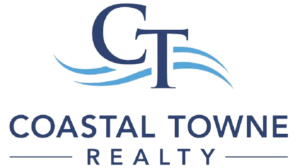Financing a home in Virginia is one of the biggest financial decisions you’ll make in your life. If you’re planning on financing your home, it’s also one of the most annoying processes for a lot of people.
Between mortgage lenders and underwriters, you’ll feel like you have to dig way back in your personal archives, provide ridiculously detailed information, and then wait until the last minute – sometimes, hours before closing – before you know for sure that everything will go through.
It doesn’t have to be that way, though.
Going into the homebuying process with a preapproval will help streamline things. It can make the process of finding a home easier, but it can also make the process of actually obtaining your mortgage easier, too.
It may not change your finances, but working with a REALTOR® and a mortgage lender hand in hand can help you realize some of the counterintuitive things that you may be doing that might make you look riskier to a lender.
After all, you have to demonstrate to the lender that you have the finances to be able to pay back your mortgage. It’s a lot of money, so they’ll do a really deep dive to make absolutely sure. Sometimes, that means that things we think are innocuous can rear their little heads and make the process more annoying, difficult, and time consuming.
The more you know, the better prepared you can be! So, what should you be on the look out for?
Your payment history should be solid.

If you applied for or took a forbearance during the early days of the COVID-19 pandemic, that’s definitely something a lender will notice. Ideally, the forbearance was awhile ago, and you quickly resumed payments.
A lender, however, will want to see that you have a strong payment history on your existing mortgages and other credit accounts before they’ll extend you more credit.
Even though there are guidelines to allow exceptions to the rules for COVID-19 on a a lot of things, it’s easier to know what you are facing ahead of time.
Be prepared to explain the situation and provide any supporting documentation the lender may require if you’re financing a home in Virginia.
You shouldn’t overdraw your account.

A lot of people have overdraft protection on their checking accounts so they’re not overly concerned if their account temporarily overdraws, especially if it can draw from a line of credit or a savings account in the meantime.
That, to a regular person, is a pretty innocuous thing.
To a lender, though, it makes it look like you’re legitimately overdrawing your account regularly – which is a red flag for the lender. A company that is planning on lending you a couple hundred thousand dollars to finance a home in Virginia wants to hedge their bets; these types of missteps can cost you big in the end.
You are trying to demonstrate loan-worthiness, and anything that could call your ability to repay into question is not going to help you get the rate and loan terms you want.
Try to be conscientious of spending and your budget so those “oops’ moments we all have don’t affect your big plans down the line.
If you’re dependent on child and/or spousal support to qualify for your loan, you’ll need to receive it consistently before you apply to finance a home in Virginia.

As a general rule of thumb when financing a home in Virginia, a mortgage lender will want to see your child and/or spousal support payment for a minimum of three months before you can use it as income for the purposes of getting a home loan.
Not only that, but you’ll want either a separation agreement or a court order that specifies how much you should receive and when, so that your mortgage lender can match up any payments you receive each month.
Ideally, too, if you’re doing a bank to bank transfer of the amount, you’ll need to be able to trace it. It’s not enough to infer that the transfer of $1,000 from the account ending in -1234 that you receive each month on the 5th is your child support. You’ll have to show that the account belongs to your ex.
Alternatively, you could receive your support by check or Venmo or some other transaction that is attributable to the payor specifically.
You’ll also need to show that you will receive this support for at least three years in the future. If you receive support for a child who is 15 or older, you won’t be able to count that child support as income for the purposes of obtaining a home loan, unless your agreement or court order specifically says that it will continue for three years or more.
Your child and/or spousal support payment – or any other payments you regularly receive, like retirement pay – should be received in full and not reduced.
Sometimes, in a divorce situation especially, co-parents work out weird arrangements. One parent will pay more than his or her share for something, and then reduce the child support accordingly. If you’re trying to secure a mortgage, you’re not going to want to do that.
The same goes with retirement pay. If you’re supposed to receive a certain amount each month, you won’t want to agree to let your ex pay you less than your portion while you’re trying to qualify for your mortgage.
If you DO need to repay him or her for something, you should do it separately. It seems like a lot of back and forth, but this way your child /spousal support or retirement pay deposit will look the same each month for the lender’s purposes.
Work out whatever you need to work out with your ex, but keep your bank account looking as clean as possible so that it’s very easy to tell what you’re receiving and when. This helps immensely when financing a home in Virginia .
The 6-12 months BEFORE qualifying for financing a home in Virginia is critical!

Mortgage lenders might be looking back at your back accounts for 6 to 12 months BEFORE you actually get your mortgage!
That’s a LONG time, so the earlier you know you’re thinking of trying to purchase a home – and the quicker you can start to get your financial affairs in order – the better.
The more organized, efficient, and clear your bank account statements and other payment information, the better and more painless your home buying process will be.
Be prepared to provide tax returns going back anywhere from 2-5 years, your most recent paystubs, and account statements for any bank accounts listed.
I have found for my clients that having these documents at the ready will make your loan processing go a little smoother.
Pay attention to what income is included on your tax return!
Your tax return and W2 matter. Things have changed since the 2008 recession and rightfully so, in many cases. It’s not nearly as easy to qualify for financing as it used to be, especially if you’re self employed. In some cases, mortgage lenders will want to see up to three years of income information if you’re self employed.
There’s no such thing anymore as providing an affidavit or statement about what you earn; if it’s different than your tax return, you may be SOL.
Mortgage lenders are truly analytical; they don’t think about money the same way we do. (And maybe we’d be wonky, too, if we were regularly lending hundreds of thousands of dollars out!) It’s helpful if you’re planning on financing a home in Virginia to get an idea of what mortgage lenders will be looking at so that you can make sure that things are as neat and tidy as possible.
In addition to prequalifying for a mortgage of a certain amount, it’s a good idea to keep in mind these sort of unusual things that the lender will be looking at when it comes time for you to get your mortgage. Follow these tips (or resolve these discrepancies) and your homebuying process will run so much more smoothly!
For more information, or to set up a time to talk one on one with me about your home search, give me a call at 240-381-5596 or email me at laurenmagaletti@gmail.com.

 Coastal Towne Realty
Coastal Towne Realty
